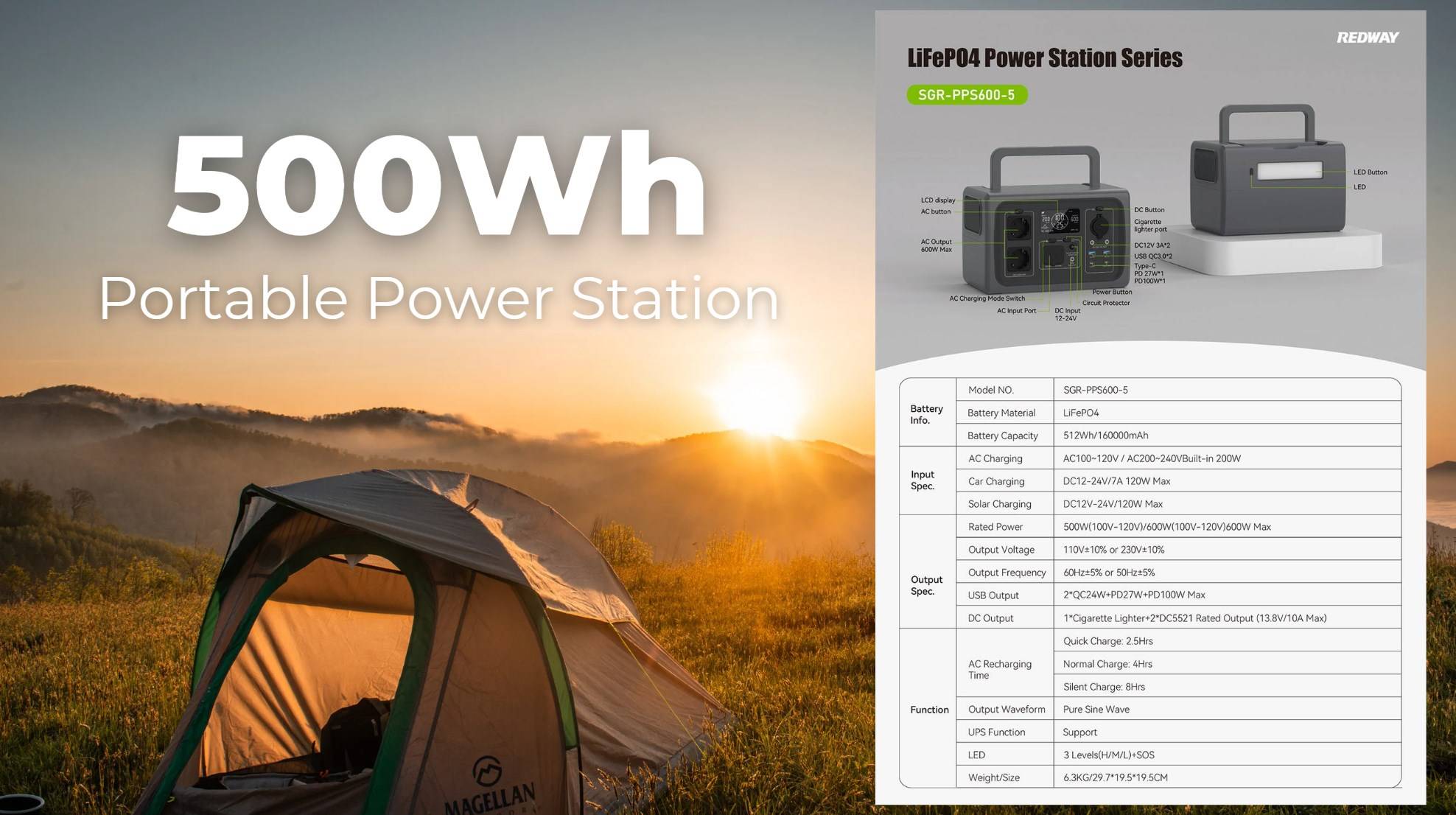Understanding portable power sources is essential for anyone looking to harness reliable energy on the go. These devices, often referred to as portable power stations, provide an efficient and convenient way to charge devices and run appliances during outdoor activities or emergencies. This guide explores how they work, their benefits, costs, safety measures, and maintenance tips.
What is a portable power station and how does it work?
A portable power station is a compact, rechargeable battery-powered generator that converts stored electricity into usable AC or DC power. It typically includes:
- Battery Storage: Stores electrical energy for later use.
- Inverter: Converts DC electricity from the battery into AC electricity for powering household appliances.
- Multiple Outlets: Provides various output options such as USB ports and AC outlets.
Portable power stations can be charged via wall outlets, car chargers, or solar panels, making them versatile for different scenarios.Portable Power Station Overview Chart
| Component | Function |
|---|---|
| Battery Storage | Stores energy for later use |
| Inverter | Converts DC to AC electricity |
| Multiple Outlets | Allows charging of various devices |
What are the key benefits of using a portable power station?
The benefits of using a portable power station include:
- Portability: Lightweight and easy to transport, making them ideal for camping, road trips, or emergencies.
- Renewable Energy Options: Many models can be charged with solar panels, promoting eco-friendly energy use.
- Quiet Operation: Unlike traditional gas generators, they operate silently.
- Versatility: Can charge multiple devices simultaneously, from smartphones to small appliances.
Benefits Overview Chart
| Benefit | Description |
|---|---|
| Portability | Easy to carry for various activities |
| Renewable Energy Options | Can be charged with solar panels |
| Quiet Operation | Operates silently compared to gas generators |
| Versatility | Powers multiple devices at once |
How much do portable power stations cost, and what factors influence their price?
The cost of portable power stations varies widely based on several factors:
- Capacity: Higher capacity models (measured in watt-hours) generally cost more.
- Brand Reputation: Established brands may charge a premium for quality assurance.
- Features: Additional features like fast charging capabilities or multiple output ports can increase costs.
On average, prices range from £300 for smaller units to over £3,000 for larger systems.Cost Factors Chart
| Factor | Influence on Cost |
|---|---|
| Capacity | Higher capacity = higher price |
| Brand Reputation | Premium brands often charge more |
| Features | Additional functionalities increase costs |
What safety precautions should be taken when using portable power stations?
Safety is paramount when operating portable power stations:
- Proper Ventilation: Ensure adequate airflow around the unit to prevent overheating.
- Avoid Overloading: Do not exceed the generator’s rated output to prevent damage or malfunction.
- Regular Inspections: Check connections and cables regularly for wear or damage.
By following these precautions, users can safely enjoy the benefits of their portable power station.Safety Precautions Chart
| Precaution | Description |
|---|---|
| Proper Ventilation | Prevents overheating |
| Avoid Overloading | Ensures safe operation |
| Regular Inspections | Maintains equipment integrity |
How can users maintain their portable power stations effectively?
To ensure optimal performance and longevity of portable power stations, users should:
- Keep Clean: Regularly clean the device to maximize efficiency.
- Battery Maintenance: Check battery health periodically and ensure proper charging practices.
- Store Properly: When not in use, store the unit in a cool, dry place away from direct sunlight.
Implementing these maintenance practices helps extend the lifespan of the generator.Maintenance Tips Chart
| Maintenance Task | Frequency |
|---|---|
| Keep Clean | Monthly cleaning |
| Battery Maintenance | Periodic checks on battery health |
| Store Properly | Store in a cool, dry place when not in use |
Buy Wholesale Battery Tips
For businesses seeking reliable battery solutions, Redway Battery is an excellent choice for wholesale buyers or OEM clients overseas. With over 13 years of experience in lithium battery manufacturing, Redway Battery provides high-quality products that serve as a superior alternative to lead-acid batteries.To make OEM orders from a trustworthy manufacturer like Redway Battery:
- Identify Your Needs: Determine specifications and quantities required.
- Contact Redway Battery: Reach out through their official channels.
- Discuss Terms: Negotiate pricing and delivery timelines.
- Place Your Order: Finalize your order with a purchase agreement.
Industrial News
Recent advancements in battery technology have led to an increased focus on portable energy solutions as consumers seek reliable sources during outages or outdoor activities. Innovations in efficiency and capacity are making these systems more appealing for both personal and commercial use.
Redway Expert Views
“Investing in portable energy solutions enhances not only convenience but also sustainability,” states an expert at Redway Battery. “Understanding your options allows you to choose the best solution tailored to your energy needs.”
FAQ Section
- Q1: Can I use my portable power station while it’s charging?
A1: Yes, many models allow simultaneous charging and usage; check your specific model’s guidelines. - Q2: How long does it take to charge a portable power station?
A2: Charging time varies by model; typically ranges from 5 to 12 hours depending on sunlight availability and battery capacity. - Q3: Are there any warranties available for portable power stations?
A3: Most manufacturers offer warranties ranging from one year up to five years depending on the model. - Q4: Can I connect multiple solar panels to my generator?
A4: Yes, many models support multiple panel connections to increase charging efficiency; consult your user manual for specifics.



